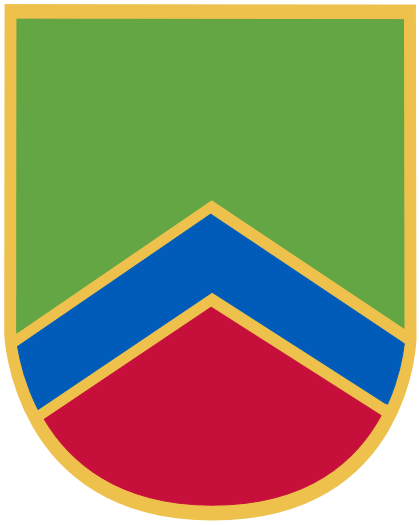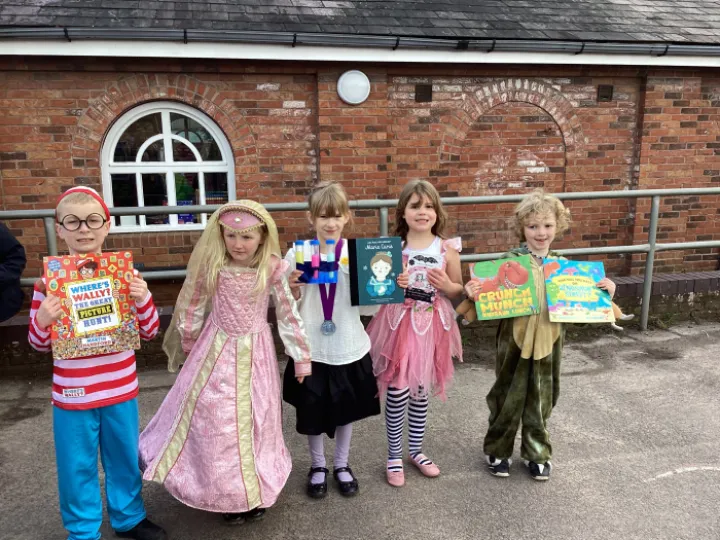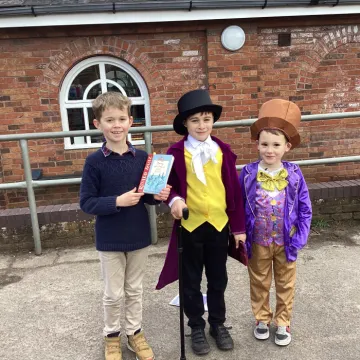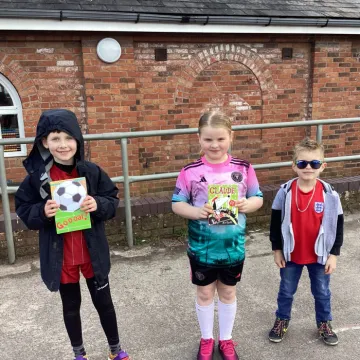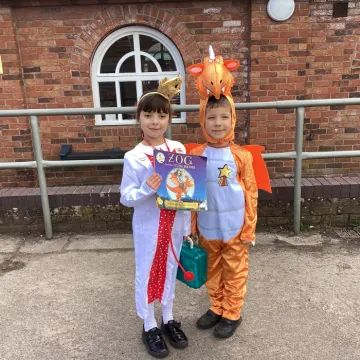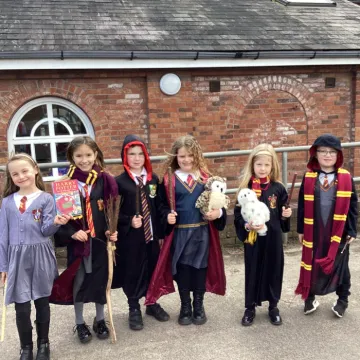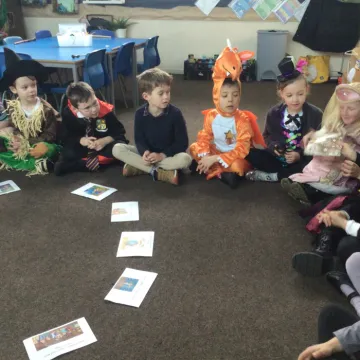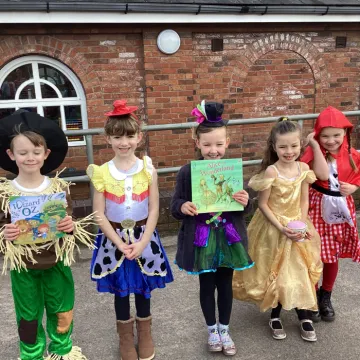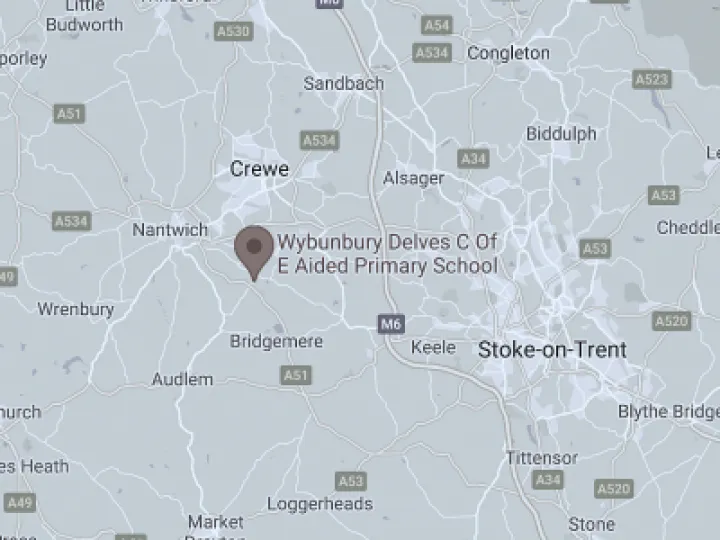Year 2 weekly newsletter
This week we celebrated world book day. We dressed up in all of our amazing costumes of our favourite book characters. We coloured our bookmarks in, shared our favourite story books and even got to meet an author. We got to have a video call with Helen Stephens who is the author of 'How to hide a lion'. She told us all about being an author and an illustrator. We enjoyed completing some drawing activities with her and listening to some of her stories. She even answered one of our questions about 'what do you like about being an author?' What a lovely day we had on Thursday. Thank you to all of the parents for all of the effort you had put into the children's costumes.
In English this week, we analysed our returning narratives to find out what vocabulary and features the writer uses. We understood the structure of the story and how our character should always return to where they were at the start of the book. You then built upon this learning by planning and writing the start of your own return narratives. We completed some role play by doing freeze frames to enhance our understanding of the characters in our story. These are amazing so far! We will finish writing them next week.
In maths this week, you learnt the multiplication of 10 and 5 and how to work out the division facts. You were amazing at using different representations to show the multiplication and division facts. It was nice to see you use the representations that make you feel confident. Towards the end of the week you started to be introduced to bar modelling. In mastering number, you have been learning about how to add 3 different numbers together. What super mathematicians you are!
In D&T this week, you started our new topic of by looking at how food gets from a field onto your plate. You found out that every food has a story to tell of how it's ended up on a plate. You learnt that most foods come from a farm and that foods can either be from a plant or animal. To build upon this learning, you drew a plate with all of your favourite food on and you then labelled where this food had originally come from. You enjoyed watching a video to show the process milk goes through for it to end up in a glass.
Your D&T lesson linked nicely to your new geography learning which is 'where does our food come from?' In this lesson you learnt the definition of fresh and processed and what foods come under these definitions. You learnt that fresh food is when a food hasn't been changed like oranges, banana or peppers and that processed food is when food has been cooked or change. You then realised that most food you eat are processed. You looked carefully at how crisps go from being fresh potatoes to processed food. You drew out the steps that they go through and where these processes happen.
What a fun RE lesson we had by revealing the Easter story through pass the parcel. As you unwrapped a layer of the parcel, you found a part of the Easter story until you got to the end where you found Easter eggs. You realised that the Easter story wasn't in order and needed to be restructured. You thought about what order it goes in and what parts are the most important. You then had to answer the question of why the Easter story is the most important festival in the Christian religion and what part of the Easter story you think is the most important. We then gathered on the carpet to eat our Easter eggs, you thought about how this symbol represents new life and the stone of the tomb's entrance.
That's what friends are for? This was the title of our PSHE lesson as you explored the videos of Shrek and donkey and how Shrek would say sorry but not mean it. You then realised that Shrek only meant his apology when he asked for forgiveness. You thought about how this linked to your own lives and how there have been certain times where you may have needed to ask for forgiveness of somebody else. Love does not count up wrongs that have been done.1 Corinthians 13:4-5
In your wellbeing activity this week, you wrote in your journals about your favourite thing to see, hear, smell and taste is.
In art, you created a collage using your art from the previous week. You thought about the different ways you can apply paint and put these into your sketchbooks.
In computing, you started your data handling topic off with learning all about tally charts. You created your tally chars on how many farm animals there are in a farm. You then answered questions about the tally chart.
You have had a fantastic week and have worked so hard.
Have a wonderful weekend,
Miss Haynes
Quick Links
Contact Us
office@wybunburydelves.co.uk
01270 841302
Wybunbury Delves
Bridge Street
Wybunbury
Nantwich
CW5 7NE
